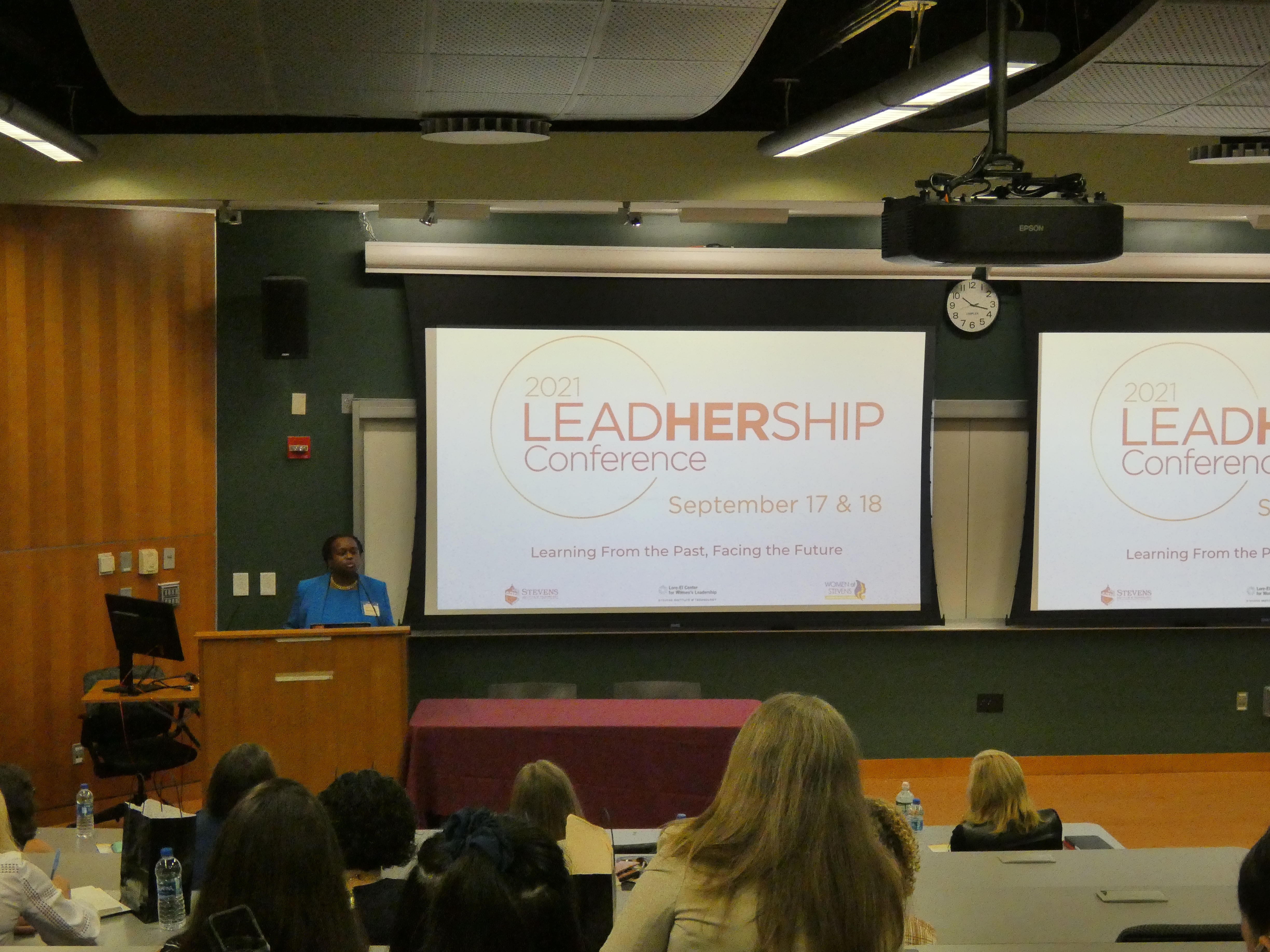On September 17 and 18, The Lore-El Center for Women’s Leadership hosted their biennial LeadHERship Conference. This year the conference celebrated the 50th anniversary of women being admitted to Stevens with the theme of “Learning From the Past, Facing the Future.” Offering both in-person and online events, the conference featured distinguished guest speakers and presenters.
On Friday evening, the conference began by welcoming Dr. Mona Hanna-Attisha. Pediatrician, researcher, and advocate, Hanna-Attisha is known for her role in uncovering the Flint water crisis. In 2016 she was named one of Time magazine’s “100 Most Influential People,” and she wrote about her advocacy in the book What the Eyes Don’t See.
In conversation with Dr. Kevin Ryan, Hanna-Attisha spoke about her career. Her advocacy made her into a public figure, and over the years she has learned to block out all the hate and negativity that she receives. She emphasised how she lives her life by the four Ps: passion, persistence, preparation, and people. Hanna-Attisha’s passion is helping children, which is why she became a pediatrician. When faced with difficulty, she remembers why she does her work. This sense of purpose has grounded her, and she believes that “if you can constantly ground yourself, it literally lifts you up.”
Hanna-Attisha’s advice for students to help end the pandemic is to get vaccinated. She stressed that while it is good for people to have questions about vaccines, they should sit down with their doctor or go to trusted sources like the Center for Disease Control to learn more.
On Saturday, 11 different workshops were offered both in-person and virtually, and participants were able to attend a maximum of three. The workshops were led by Stevens alumni and professors, and they focused on four themes: trust in science, foundational leadership, lessons in life and work, and the new normal (assessing the impact of COVID-19). Some of the workshops were Managing Life’s Variable Pathways, Practicing Inclusive Leadership, and No Such Thing as a Female Brain. Between the workshops, lunch was provided; attendees had the opportunity to network with the fellow students and alumni who were present.
The conference concluded with a virtual visit from aerospace engineer, professor, and researcher Dr. Aprille Joy Ericsson. Ericsson was the first person of color to receive the Washington Award from the Western Society of Engineers and has worked with NASA for over 25 years.
Ericsson has broken through many barriers in life, but not without setbacks. She entered her freshman year of MIT without taking any calculus classes and had to work hard to catch up to her peers. Through grit and perseverance, she was able to get through her classes, and has gone on to lead research teams designing space exploration instruments on projects costing up to $500 million dollars.
Ericsson spoke about the importance of having mentors and female role models, who she affectionately termed her “sheros.” Ericsson listed her mother, Lt. Uhura from Star Trek, and Katherine Johnson as some of her inspirations. As a mother and leader of a girls robotics team, Ericsson now serves as a mentor for the next generation.
The conference was made possible through extensive planning from the Lore-El Center. Liliana Delman, Assistant Director for Diversity Education, spoke to The Stute about the planning process: “After building a dedicated group of students, faculty and staff members, the 2021 LeadHERship Conference Planning Committee began meeting back in March – 7 months ago! We met bi-weekly to review options for the keynote speakers, created the call for programs to gather workshop proposals, organized the space and catering needs, advertised the events and managed registration.” While the conference always requires much planning, this year required extra attention to detail due to the hybrid format.
Delman emphasized that the goal of the conference was to amplify the voices gender minorities, and she hopes “conference participants left the keynotes and/or workshops with a sense of purpose – seeing how they can apply a lens of inclusion, gender equity, and leadership to the work they do both in school and in their professional endeavors.”

Be First to Comment